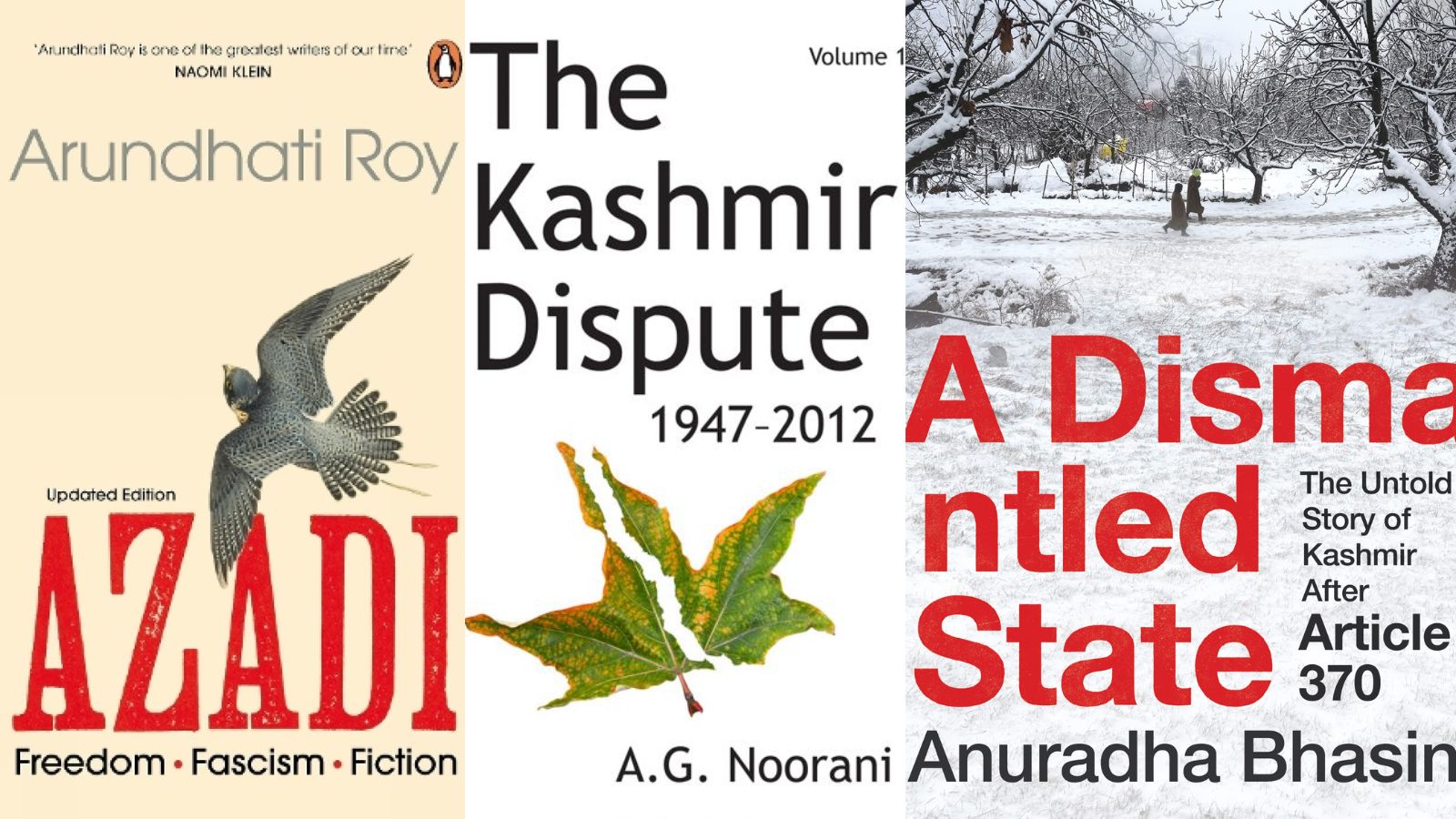HC to hear plea against J&K book forfeiture order
Advocates appearing for the petitioners told The Indian Express that the Chief Justice of the High Court, Justice Arun Palli, orally directed that a three-judge special bench will be set up at the earliest to hear the matter.
 ast month, the J&K administration had forfeited 25 titles, saying they “propagate false narrative and secessionism in J&K”.
ast month, the J&K administration had forfeited 25 titles, saying they “propagate false narrative and secessionism in J&K”. The Jammu & Kashmir and Ladakh High Court Tuesday agreed to hear a petition challenging the J&K Government’s August 5 notification that forfeited 25 books.
Advocates appearing for the petitioners told The Indian Express that the Chief Justice of the High Court, Justice Arun Palli, orally directed that a three-judge special bench will be set up at the earliest to hear the matter.
Those challenging the ban include Dr Sumantra Bose whose two books ‘Contested Lands’, and ‘Kashmir at the Crossroads: Inside a 21st Century Conflict’ are in the forfeited list; retired Air Vice Marshal Kapil Kak; expert on conflict, peacemaking and peacebuilding Dr Radha Kumar, and former Chief Information Commissioner of India Wajahat Habibullah.
The petitioners were represented by Advocates Vrinda Grover, Soutik Banerjee, Devika Tulsiani, Ratna Appnender and Adil Pandit.
The special bench will be constituted under Section 99(2) of the BNSS, which allows appeals against a state notification forfeiting any printed material (newspapers, books or documents) that can endanger the sovereignty and integrity of India, promote enmity between groups, or are intended to outrage religious feelings.
Section 99(2) specifically mentions that “every such application shall be heard and determined by a Special Bench of the HC composed of three Judges”.
Last month, the J&K administration had forfeited 25 titles, saying they “propagate false narrative and secessionism in J&K”. The government’s order also claimed some of the books had contributed to “radicalisation of youth in J&K”.
The petition before the HC states that the government order merely reproduces broad statutory provisions, without linking them to the actual contents of the books. They say this falls short of the “threshold of a ‘reasoned order’ envisaged by Sec 98 (of the) BNSS”, stressing that such reasons must be part of the order itself and “cannot be supplied at a later stage”.
The order does not explicitly mention the content of books that are identified for forfeiture, and this “failure to identify and incorporate the content(s) of the book(s)”, the petition states, “is a fatal illegality which is not curable at this stage”.
The petitioners argue that forfeiture provision, Section 98 of the BNSS, “cannot be used to erase the lived realities and people’s histories, as that would amount to an erasure of the nation’s history which violently militates against the people’s right to know”. They say that such “works of history, published through academic rigour, research and thoroughness, are open to be debated, but cannot be erased on the basis of fleeting sensitivities that may get hurt of people incapable of engaging with dissenting or alternate views”.
The petition also “seeks to protect and preserve academic works”, and such a blanket ban on “historical works is a disservice not only to the right to know of today’s citizenry, but also of the right to know of future generations”. Such an act is “unbecoming of a constitutionally guided State functionary”, the petition says.
The matter was first mentioned before a three-judge bench of the Supreme Court comprising Justices Surya Kant, Joymalya Bagchi and Vipul M Pancholi in a PIL on August 29. The SC had directed the petitioners to move the HC and requested the CJ to expeditiously decide the plea.







